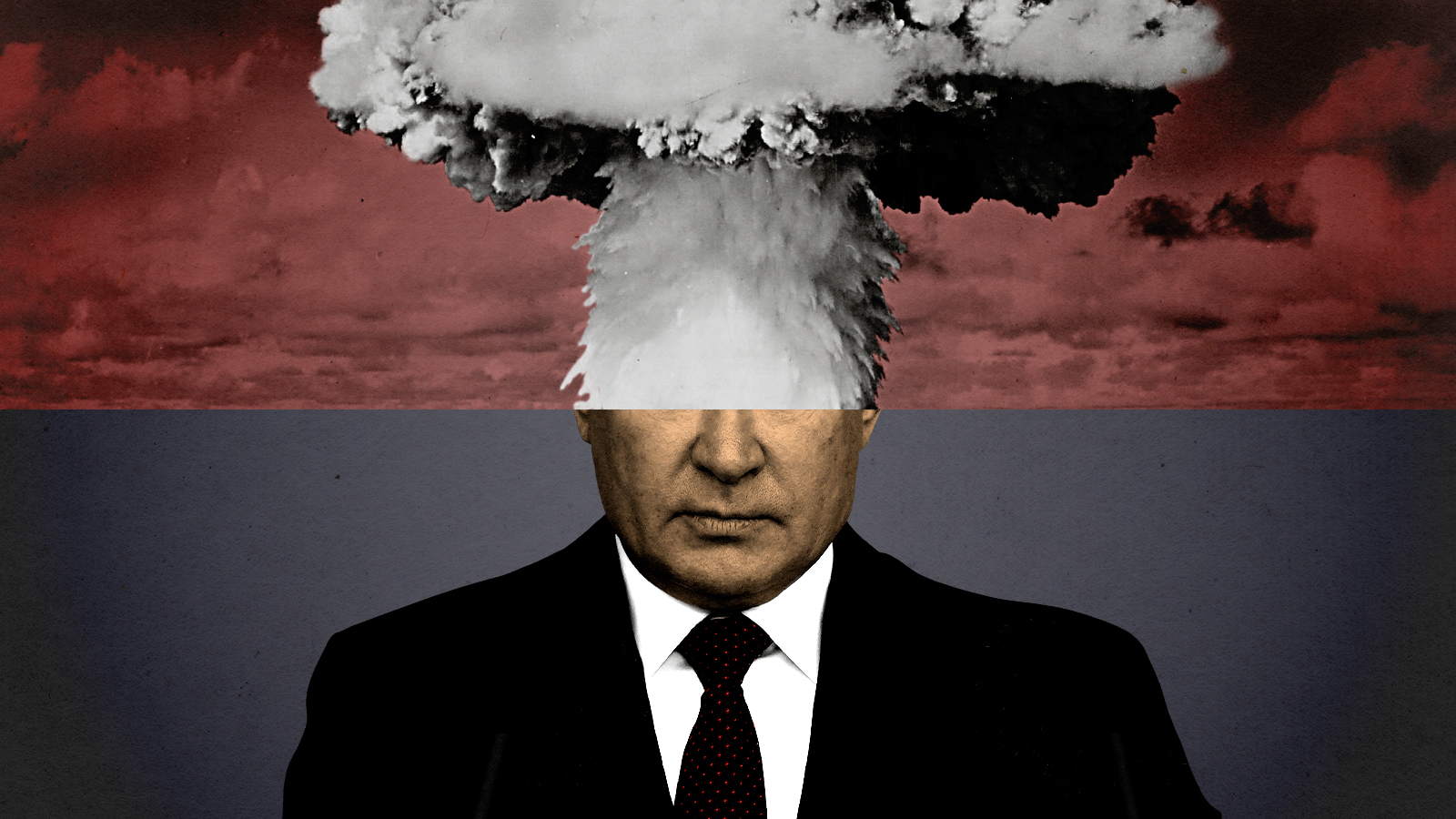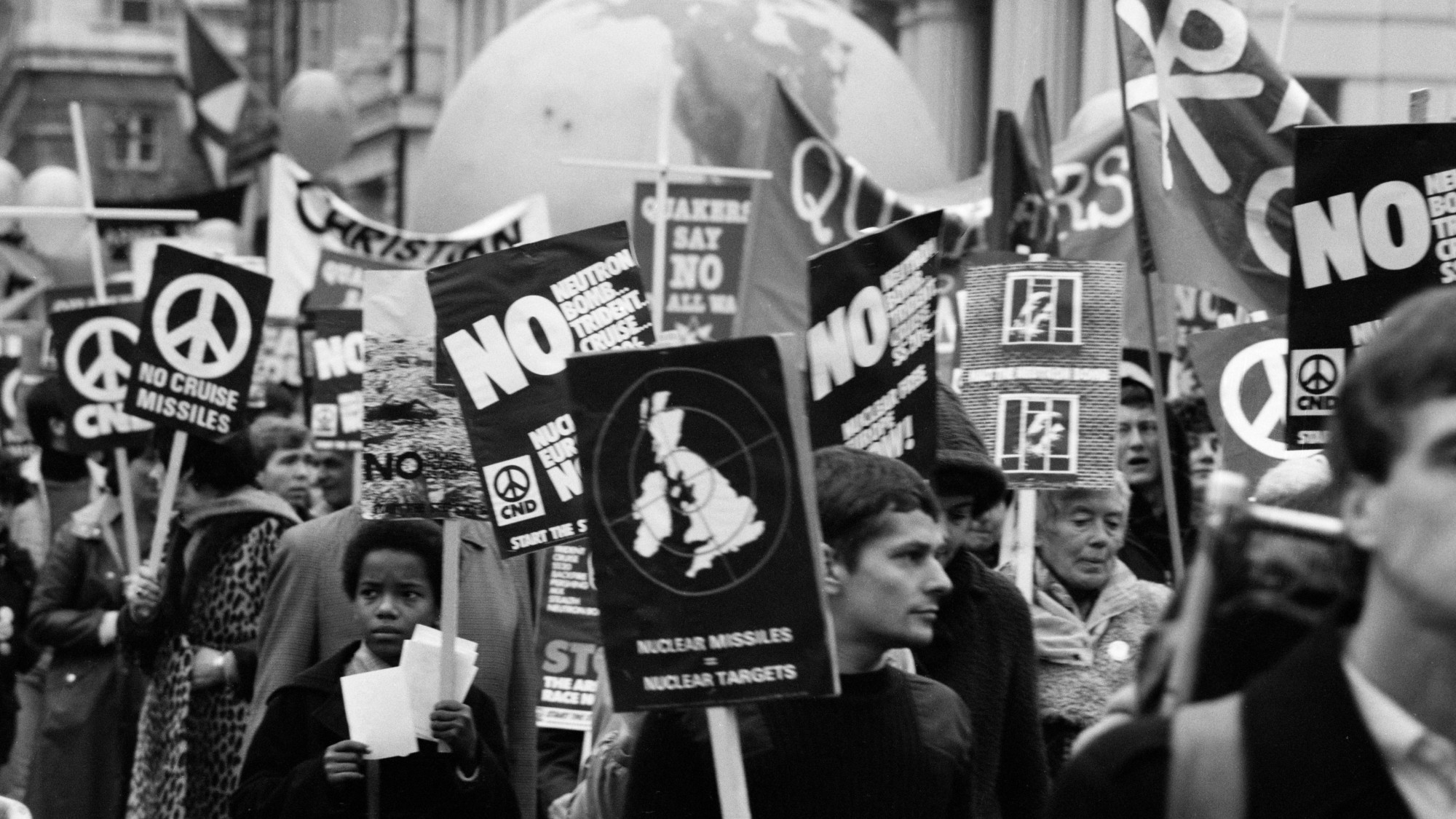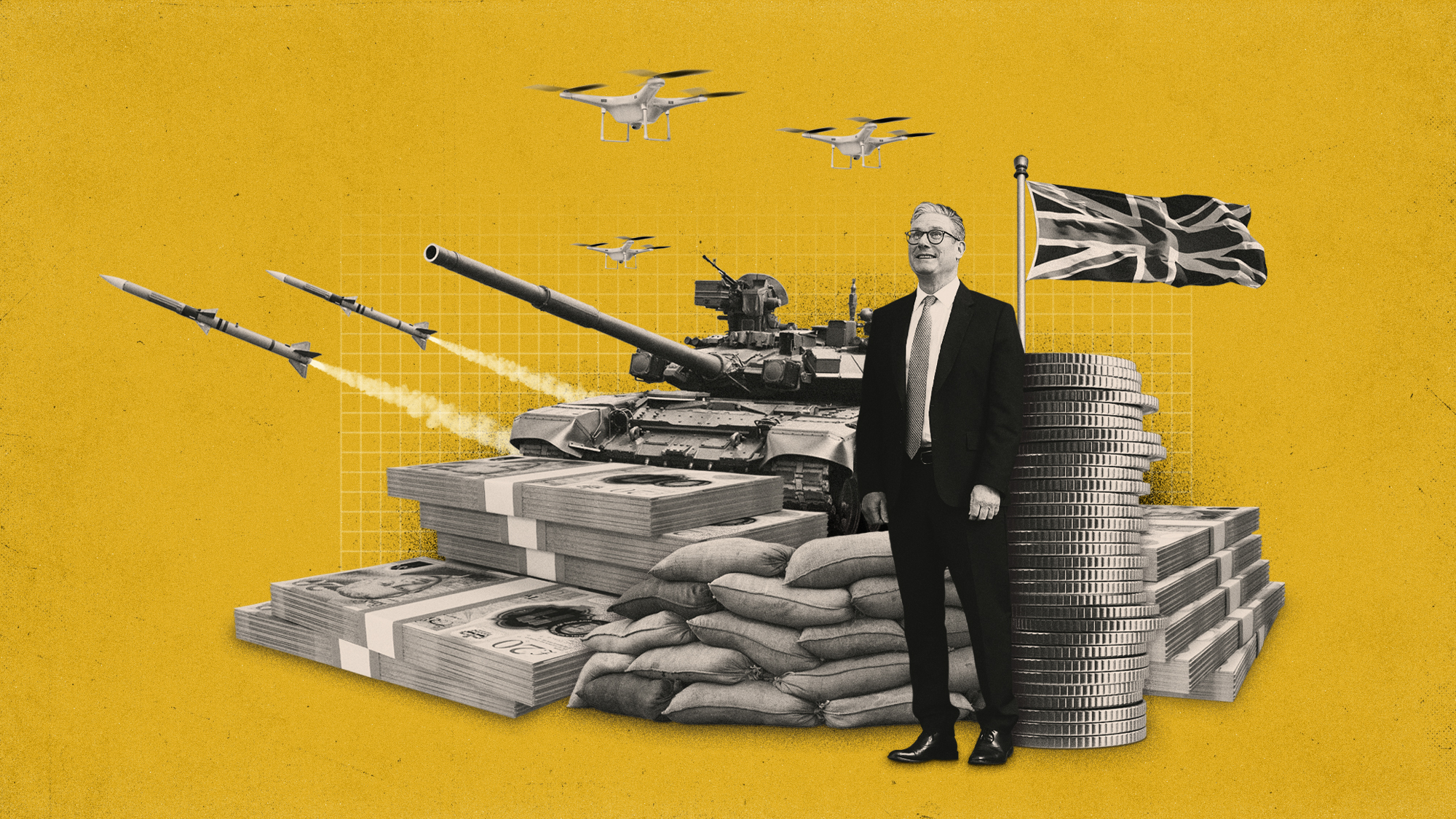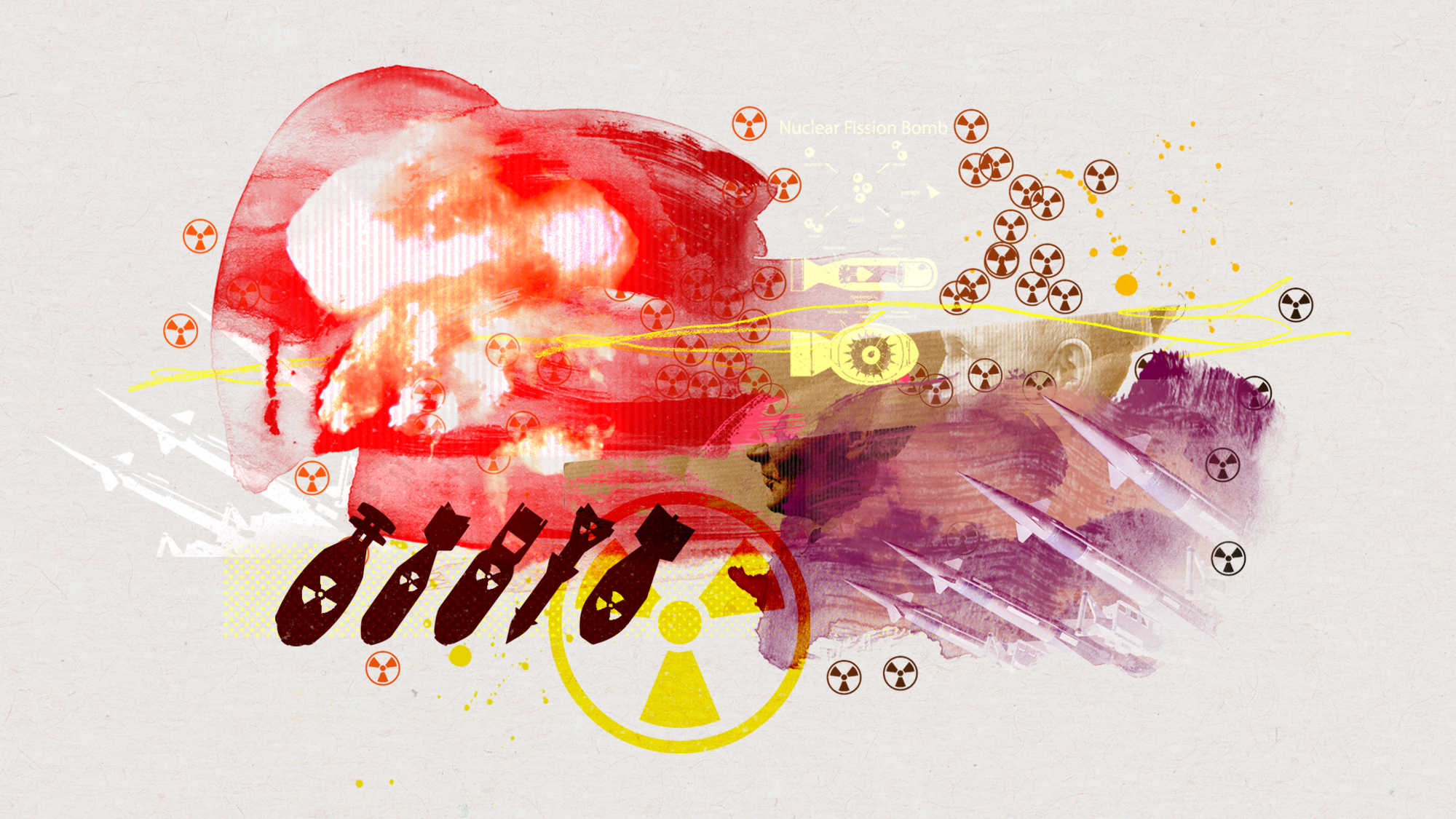Will Russia go nuclear in Ukraine?
The sharpest opinions on the debate from around the web


A free daily email with the biggest news stories of the day – and the best features from TheWeek.com
You are now subscribed
Your newsletter sign-up was successful
Ukraine's counteroffensive gained momentum this week, with the country's forces overrunning Russian forces and retaking more than 20 villages in the northeastern Kharkiv region over a single day. The sudden, unexpectedly overwhelming surge forced the outnumbered Russian troops to retreat in disarray, leaving equipment behind as Ukrainian forces pushed through to the Russian border. Ukrainian President Volodymyr Zelensky praised his troops, saying, "the enemy is panicking," and promised that Ukrainian forces would take back every inch of territory Russia has seized since invading in February.
The battlefield setbacks raised pressure on Russian President Vladimir Putin. The rout of his forces in the northeastern Kharkiv region highlighted miscalculations by Putin and his military leaders. Prominent Russians have started publicly criticizing Putin's strategy. "Mistakes were made," Ramzan Kadyrov, the Moscow-backed leader of the Russian region of Chechnya, said in a Telegram post, calling for a change in strategy. Ukraine's military chief, Gen. Valery Zaluzhny, there is a "direct threat" that Russia could resort to using tactical nuclear weapons, which could drag other powers into a "limited" nuclear conflict that could expand into "World War III." Would Russia go nuclear in response to setbacks on the battlefield?
Putin is capable of anything
"Ukraine's counteroffensive against invading Russian forces is an important turn in the war," says The Wall Street Journal in an editorial. In a week-long rush, Ukraine has retaken more territory than Russia has seized since April. This unexpected success, after months of what felt like an impasse, has done wonders for Ukrainians' morale, but it is "not without peril as Vladimir Putin calculates how to respond." So far, Russia has hit back with strikes against Ukrainian power stations in "an attack on electricity for civilians." A greater danger is that Putin will "engage NATO forces in some fashion that he would blame on the West and use to justify the military draft." Worse, he might resort to using chemical or tactical nuclear weapons. Remember, Putin "is capable of anything."
The Week
Escape your echo chamber. Get the facts behind the news, plus analysis from multiple perspectives.

Sign up for The Week's Free Newsletters
From our morning news briefing to a weekly Good News Newsletter, get the best of The Week delivered directly to your inbox.
From our morning news briefing to a weekly Good News Newsletter, get the best of The Week delivered directly to your inbox.
It's time to step up deterrence
Russia's hectic withdrawal is exactly what you'd expect if it was preparing to launch tactical nukes, says Michael Rubin at 1945. The "fear of Russian nuclear weapons" kept the U.S. from acting forcefully to prevent the invasion, and Putin might be banking on the same trepidation to protect him now. If President Biden makes this a "redline" in Ukraine, he mustn't back down the way then-President Barack Obama did when Syrian forces used chemical weapons in 2012. The White House and NATO should make clear "the pain Russia will suffer," economically and militarily, if this retreat is "a feint" leading to tactical nuclear use against Ukrainian soldiers and cities." It is time both to step up deterrence and plan for what comes" next if Russia takes such a dangerous and irresponsible step.
Russia is more likely to freeze its foes than nuke them
There are reasons for Putin to hold his nuclear fire, says Gideon Rachman in the Financial Times, including the fact that "Russia itself would be contaminated by the fallout" from a nuclear strike. "The global political reaction would be very negative and a western military response, probably non-nuclear, would be all but inevitable." But a humiliating defeat is something Putin wants to avoid at all costs. "Like Russian leaders in the past, Putin is hoping that winter will come to his rescue. Russia's recent announcement that it will stop almost all gas supplies to Europe is clearly intended to freeze the western supporters of Ukraine into submission." But for "the gas gambit to work," he'll need "a very cold winter or a surge in political protests," neither of which is a given, especially now that Germany has stockpiled nearly 87 percent of the natural gas it can store.
Putin also could claim a smaller victory
The danger that Russia will escalate the war is real, says David Ignatius in The Washington Post. But Putin also "could define victory downward," and say that his special military operation was always about "protecting Donetsk and Luhansk, the two Russian-speaking cities in the east that Putin captured in 2014," and never about gaining more territory in Kherson and Kharkiv. "Certainly, he could say that it's about Crimea, a sentimental prize for which Putin might actually risk all-out war." Either way, "Zelensky would be wise to avoid strategic overreach" and spreading his forces too thin. The United States has always said it was committed to giving Ukraine the weapons it needs for self-defense, avoiding war with Russia, and ending the conflict through diplomacy. "All three goals should come into sharper focus after Ukraine's successful offensive."
A free daily email with the biggest news stories of the day – and the best features from TheWeek.com
Harold Maass is a contributing editor at The Week. He has been writing for The Week since the 2001 debut of the U.S. print edition and served as editor of TheWeek.com when it launched in 2008. Harold started his career as a newspaper reporter in South Florida and Haiti. He has previously worked for a variety of news outlets, including The Miami Herald, ABC News and Fox News, and for several years wrote a daily roundup of financial news for The Week and Yahoo Finance.
-
 How the FCC’s ‘equal time’ rule works
How the FCC’s ‘equal time’ rule worksIn the Spotlight The law is at the heart of the Colbert-CBS conflict
-
 What is the endgame in the DHS shutdown?
What is the endgame in the DHS shutdown?Today’s Big Question Democrats want to rein in ICE’s immigration crackdown
-
 ‘Poor time management isn’t just an inconvenience’
‘Poor time management isn’t just an inconvenience’Instant Opinion Opinion, comment and editorials of the day
-
 New START: the final US-Russia nuclear treaty about to expire
New START: the final US-Russia nuclear treaty about to expireThe Explainer The last agreement between Washington and Moscow expires within weeks
-
 The history of US nuclear weapons on UK soil
The history of US nuclear weapons on UK soilThe Explainer Arrangement has led to protests and dangerous mishaps
-
 Vladimir Putin’s ‘nuclear tsunami’ missile
Vladimir Putin’s ‘nuclear tsunami’ missileThe Explainer Russian president has boasted that there is no way to intercept the new weapon
-
 The mission to demine Ukraine
The mission to demine UkraineThe Explainer An estimated quarter of the nation – an area the size of England – is contaminated with landmines and unexploded shells from the war
-
 Is UK's new defence plan transformational or too little, too late?
Is UK's new defence plan transformational or too little, too late?Today's Big Question Labour's 10-year strategy 'an exercise in tightly bounded ambition' already 'overshadowed by a row over money'
-
 What are the different types of nuclear weapons?
What are the different types of nuclear weapons?The Explainer Speculation mounts that post-war taboo on nuclear weapons could soon be shattered by use of 'battlefield' missiles
-
 The secret lives of Russian saboteurs
The secret lives of Russian saboteursUnder The Radar Moscow is recruiting criminal agents to sow chaos and fear among its enemies
-
 Is the 'coalition of the willing' going to work?
Is the 'coalition of the willing' going to work?Today's Big Question PM's proposal for UK/French-led peacekeeping force in Ukraine provokes 'hostility' in Moscow and 'derision' in Washington
